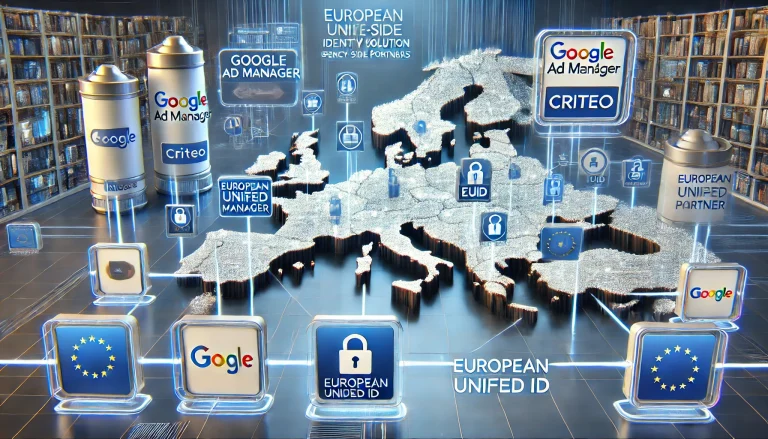Several prominent supply-side advertising partners, including Google Ad Manager, Criteo Commerce Grid, and Equativ, have adopted the European Unified ID (EUID), a new open-source identity solution developed by The Trade Desk. This move marks a significant step in reshaping how identity is managed in online advertising across Europe, providing marketers and publishers with tools to effectively target audiences while respecting privacy concerns.
EUID leverages hashed email addresses and encrypted identifiers to create a privacy-friendly identity framework. This open-source approach is designed to ensure interoperability and transparency, enabling brands, publishers, and retail partners to more effectively reach consumers on the premium open internet. By prioritising privacy, the EUID system gives consumers greater control over how their data is collected and used, aligning with rising data protection expectations.
The integration of EUID into the European ad ecosystem is the latest in a series of industry shifts away from third-party cookies toward solutions that facilitate responsible, privacy-first advertising. Cadi Jones, Senior Vice President of Europe at Index Exchange, spoke to the importance of such advancements. “It is crucial that publishers, agencies, and brands test and implement solutions within the evolving addressability landscape,” Jones noted. “Developing a robust strategy including publisher first-party data solutions, advanced contextual capabilities, partnerships with leading identity providers, and adopting new solutions such as European Unified ID will ensure advertisers can continue to reach audiences across the increasingly fragmented network of devices and channels.”
A wide range of supply-side platforms (SSPs), including Criteo Commerce Grid, Equativ, FreeWheel, Hubvisor, Improve Digital (Azerion), Index Exchange, Magnite, Microsoft Monetize, PubMatic, Stroer, TripleLift, and Yieldlab (Virtual Minds), are already set up to pass EUID in the bidstream. This technical support enables demand-side platforms (DSPs) to access identity information during bidding, allowing for more precise targeting in the auction process. For publishers, Google Ad Manager’s Secure Signals feature provides an option to pass EUID, giving them additional control over identity data.
The move towards EUID reflects a broader effort within the advertising industry to address the limitations of third-party cookies while preserving the value of programmatic advertising. Sven Hagemeier, General Manager of Inventory Development EMEA at The Trade Desk, underscored the need for such a solution. “Programmatic advertising is such a prominent revenue source for so many publishers that a new model of identity beyond third-party cookies is critical to sustaining a free and open internet,” he said. Hagemeier added that EUID allows publishers to implement a privacy-conscious identity solution that enhances their ability to monetise content. “At its core, EUID represents an open-source and interoperable collaborative initiative that is focused on creating a better industry standard that benefits consumers, advertisers, and publishers.”
By embracing EUID, ad tech leaders are positioning themselves to adapt to an increasingly fragmented advertising landscape. EUID provides an efficient, privacy-friendly way to manage identity across a wide range of devices and channels, ensuring that advertisers can continue to engage effectively with target audiences while building consumer trust.

